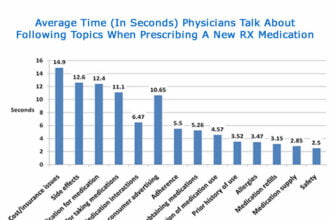To Ask The Question
Americans want doctors who care about them, not just for them. Yes, we do want clinicians to be competent and skilled. But above all, we want doctors who genuinely care about our lives, listen to our concerns and allay our anxieties. So the visions of doctoring offered by two physician writers last week presented a jarring contrast.
To Ask The Question
Americans want doctors who care about them, not just for them. Yes, we do want clinicians to be competent and skilled. But above all, we want doctors who genuinely care about our lives, listen to our concerns and allay our anxieties. So the visions of doctoring offered by two physician writers last week presented a jarring contrast.
The Humanist
Dena Rifkin, MD is a nephrologist who practices at the University of California, San Diego and the San Diego Veterans Affairs Healthcare System. She published “A Fighting Chance: How Acute Care Training Is Failing Patients With Chronic Disease”, in the August issue of Health Affairs. (No paywall!) Dr. Rifkin tells the story of two kidney dialysis patients, one frail, the other relatively robust. She uses her account to show the deficiencies in physician training.
Martin was the healthier patient. Healthier is a guarded notion when speaking of dialysis patients. They are prone to heart disease, are often diabetics and have higher risks of anemia, depression, and stroke. Martin often arrived early for his dialysis appointments and made the rounds greeting fellow patients before receiving his own treatment. He stayed late to welcome the next group of patients as they arrived. Kidney disease appeared to be his only problem.
James needed ambulance transportation to the dialysis center. Cadaverous, too weak to walk, he was carried in on a stretcher. He spent his time at the center curled in a dialysis chair, silent except to confirm his name when asked. James needed many hospitalizations to treat infections, strokes, and heart failure. He was the image that many clinicians conjure when they imagine “dialysis patient”. Which isn’t often, because most prefer not to think about them.
When Martin mentioned a “twinge” in his chest with studied casualness, Dr. Rifkin was worried. She notes heart disease is the most common killer of kidney failure patients. Testing showed advanced heart disease. Martin, hospitalized for treatment, had two heart attacks, followed by heart failure. He finally suffered fatal cardiac arrest.
Dr. Rifkin got to the hospital several minutes after Martin was pronounced dead. He was surrounded by the flotsam that washes up after a frantic resuscitation attempt runs aground. After a meeting to talk about his case, the team agreed his death was inevitable and wandered their separate ways. Dena Rifkin “…sat in the conference room, feeling utterly alone in my sense of sorrow. Why did it seem I was the only one who found Martin’s death so difficult to accept?”
The Analyst
John Haughom, MD is a senior advisor to Health Catalyst, a health care data-management company. He posted “The Future Is Calling Us” on The Health Care Blog earlier this month. Though the topic of the piece is proposed changes to physician recertification, Dr. Haughom makes several sweeping claims about medicine.
He contends the profession is undergoing a “…fundamental shift from a… craft-based practice to a more sophisticated, data-driven… practice.” He notes solo-based practice is “dying”. Recent surveys support that statement, though, perhaps, for reasons that Dr. Haughom prefers not to highlight. (See http://bit.ly/1kCgzzl.)
According to Dr. Haughom, the transformation of medicine isn’t happening fast enough at the grassroots, individual provider level. He says it’s time for clinicians to practice “…a new, more effective… more empowering approach to clinical care.” These new requirements doctors must fulfill to keep their certifications supposedly encourage this transformation.
The Future
The transformation of medicine from craft to data-driven enterprise is inevitable, he says, because “…most patients already have multiple physicians and dozens of other caregivers…”. (Really? Many Americans would consider themselves lucky to have one physician, Obamacare or no Obamacare.) He supposes most clinicians are practicing in organizations that are rational care delivery systems promoting care processes while collecting data. Or some such corporate speak. All of it built on the vast structures of advanced IT, electronic medical records, decision support systems, sophisticated analytics, and data warehousing. Data warehousing, analytics and “… provid[ing] deep insights into evidence-based metrics that drive improvement in quality and cost reduction through managing populations, workflows…” happen to be services sold by his employer. (See http://www.healthcatalyst.com/catalyst-approach/.)
Dr. Rifkin laments young physicians are not receiving enough experience caring for people with chronic illnesses. She says when she calls the ER about one of her dialysis patients, she is greeted with, “Which one of your hopeless cases is it today?” The “evidence-based metrics that drive… cost reduction” that so excite Dr. Haughom and his employer would no doubt confirm that judgment.
You may sit by the hospital bed of family member in the depths of the night. Or lie in one yourself. The evidence-based cost reduction metrics may judge you or your mother a hopeless case. Which vision do you want inspiring the physician who walks into the room?
“To ask the question is to answer it.”
Frederick O. Douglass







